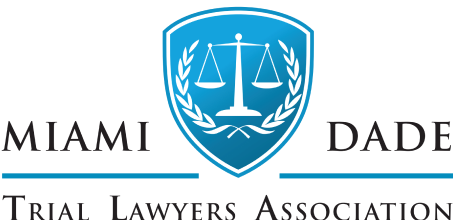Table of Contents
The likelihood of someone on a motorcycle getting a head injury can vary significantly depending on several factors. Wearing a helmet, as required by helmet laws in many states, greatly reduces the risk of severe head trauma in the event of an accident.
#1 Helmet Usage
Wearing a properly fitting and certified helmet is one of the most effective ways to reduce the risk of a head injury while riding a motorcycle. Helmets can significantly decrease the severity of head injuries in the event of an accident.
#2 Speed and Impact
The speed at which a motorcycle is traveling and the force of impact during a collision play a major role in determining the likelihood and severity of head injuries. Higher speeds and more severe impacts generally increase the risk of head injuries.
#3 Type of Collision
The type of collision, meaning a single-vehicle accident, collision with another vehicle, or other factors, can influence the likelihood of head injuries. Collisions with other vehicles might result in different trajectories and forces compared to accidents involving only the motorcycle.
#4 Rider Skill and Experience
Experienced riders who have undergone proper training and have good riding skills may be more adept at avoiding situations that could lead to accidents and head injuries.
#5 Road Conditions
Poor road conditions, such as wet or slippery surfaces, potholes, and uneven roads, can increase the likelihood of the type of accident that leads to head injuries.
Different states or even counties have varying traffic laws and regulations that can affect the safety of motorcycle riders. Laws related to helmet usage can impact the likelihood of motorcycle accidents and subsequent head injuries.

What Do Helmets Do to Protect Motorcycle Riders?
Helmets play a critical role in protecting motorcycle riders by providing several layers of safety in the event of an accident. Helmets are designed with materials that can absorb and distribute the force of impact over a larger area, reducing the concentration of force on a specific point of the head. This helps to minimize the risk of skull fractures and traumatic brain injuries. The padding and lining inside a helmet not only provide comfort but also help reduce abrasions and friction between the helmet and the head. This is important in minimizing skin injuries during a slide or impact.
As well, they also help with head stabilization. It does so by stabilizing the head during a collision, preventing excessive movement that could lead to rotational injuries to the brain. Rotational injuries are particularly dangerous as they can result in shearing forces that damage delicate brain tissues.
That’s not all. It offers protection from debris and penetration. The hard outer shell of a helmet provides a barrier that can prevent sharp objects, such as rocks or road debris, from penetrating the helmet and causing direct injuries to the head. Motorcycle helmets shield the rider’s face and eyes from debris, bugs, rain, wind, and other environmental factors that could impair vision and cause distraction while riding.
Motorcycle helmets don’t just protect the skull itself, but the face too. Many helmets are equipped with visors or face shields that offer protection for the rider’s face and eyes. This feature safeguards against debris, wind, and the potential for facial injuries in a crash.
There is also energy dissipation to consider. Helmets are designed to disperse and absorb the energy generated during an impact. This energy dissipation helps prevent concentrated forces from reaching the skull and brain, thus reducing the risk of serious injuries.
What Are Helmet Laws in Miami, Florida for Motorcycle Riders?
In Miami and the rest of the great state of Florida, motorcycle helmet laws are as follows:
Helmet Laws for Riders Under 21
All motorcycle riders under the age of 21 are required to wear a helmet that meets the standards set by the United States Department of Transportation (DOT). This applies to both operators and passengers.
Helmet Laws for Riders 21 and Older
Motorcycle riders who are 21 years of age or older are not required to wear a helmet if they have at least $10,000 in medical insurance coverage for injuries that might result from a motorcycle crash.
As well, it’s important to note that the helmet law in Florida has a specific insurance requirement for riders 21 and older. If they choose not to wear a helmet, they must have the specified amount of medical insurance coverage. This is intended to help cover potential medical expenses that might arise from injuries sustained in a motorcycle crash.
That being said, $10,000 in medical insurance coverage won’t go far. That amount likely won’t be enough to pay for all of a rider’s medical needs, as well as other bills that begin piling up. This may be something you’re experiencing first hand. If you suffered bodily injury when riding your motorcycle, then you need to talk to Miami motorcycle accident lawyers right away. Most motorcycle accidents involve severe injuries that undoubtedly lead to high medical expenses. A Miami motorcycle accident can cause traumatic brain injuries, and more. You may be wondering who will pay for your medical bills, lost wages, and damages while you recover. Let us help you answer that question!












